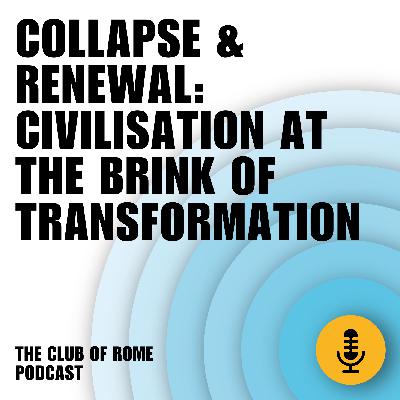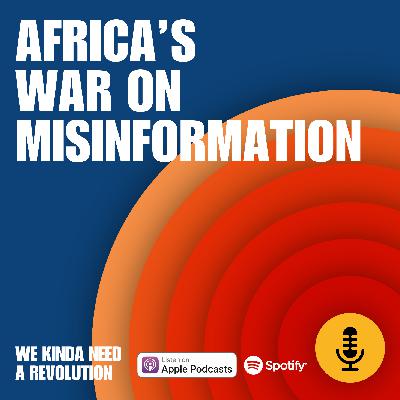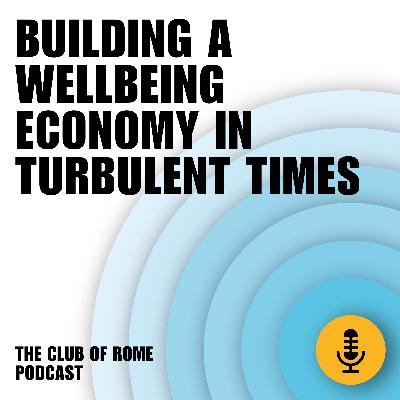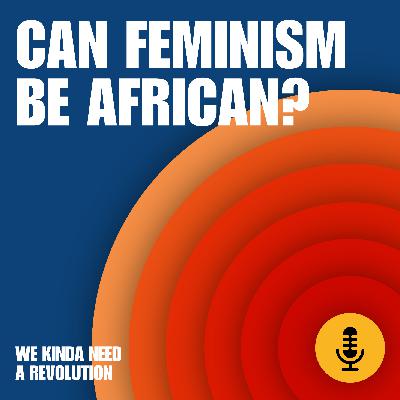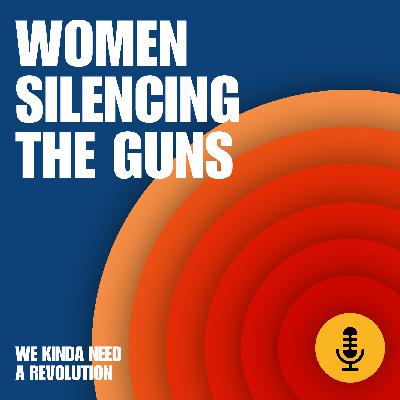Universal Basic Dividend: A path to economic justice with Sarath Davala, Ken Webster and Till Kellerhoff
Description
As the world faces increasing inequality and environmental degradation, the Universal Basic Dividend (UBD) emerges as a promising idea for a more equitable and sustainable economic system. UBD proposes that the wealth generated from our shared resources, such as land, air and water, should benefit everyone, not just a few.
In this episode, Till Kellerhoff is joined by Ken Webster and Sarath Davala to explore the transformative potential of UBD. They discuss the ethical justification for sharing the commons, examine the challenges of implementing UBD and consider how UBD could help transition to a regenerative economy.
Tune in for a thought-provoking conversation on how UBD could pave the way for a fairer and more sustainable future.
Watch the video:
Full transcript:
Till: (0:00 ) Welcome to the Club of Rome podcast today on the Universal Basic Dividend. My name is Till Kellerhoff. I am Program Director at the Club of Rome and Program Lead of the Earth for All Initiative. We have two great guests today, and I'm very pleased to welcome Ken Webster, who is a visiting professor at Cranfield University, fellow at the Cambridge University Institute for Sustainable Leadership, contributing author of the latest report to the Club of Rome, Earth for All, A Survival Guide for Humanity, and lead author of three Earth For All deep dive papers on universal basic dividend. Welcome Ken. And we have with us today Sarath Davala, who is an Indian sociologist and president of the Basic Income Earth Network, amongst many, many other things, he co authored the book, Basic Income, A Transformative Policy for India. And he's also a contributing author to the Earth for All deep dive paper, unconditional cash transfers and t he five turnarounds, beneficiaries perspectives. Welcome Sarath. Let's dive, dive right into the topic universal basic dividend. And Ken, let's, let's start with you. I think many people have heard the expression universal basic income in the last years. It has been a prominent discussion, basically described as a regular cash payment to all members of a community without any conditions. Today we speak about the universal basic dividend. Maybe you can start explaining in a few words what what that is, and how it relates to the concept of the universal basic income many listeners will be familiar with.
Ken: (1:42 ) Okay, thank you Till. The universal basic dividend is really a kind of basic income, because it is an unconditional cash transfer. It is regular, and it is, if you like, an obligation towards the fellow members of our communities. But the basic dividend differs in the use of the word dividend, rather than just income, and the dividend is a reward, if you like, for owning something, or co-owning something, or having a share of something. Now a basic dividend is connected to common resources. It might be the atmosphere, it might be the ocean, it might be forests, it might be the local Tool Lending Library. These are commons. These are resources which people can access and also as part of a community manage so the basic dividend is a reward, or a share of a reward, for resources which have been captured, enclosed is generally the word people use, and it's an ethical obligation to give people a share of these surpluses. In the economic language it's called economic rents. These are surpluses which are not required to keep the business going. So if some of our shared heritage has been captured, the idea is part of the gains from that should be put into a fund, and the benefits of the fund should feed back to everyone in the community, either nationally or in the grand scheme of things, globally,
Till: (3:23 ) Super thank you, Ken. And we will dive a bit deeper into the practicalities of all of that. And Sarath, you have worked for many, many years on the universal basic income and ideas around that, and we know that there are many, many different concepts on how to implement that. Do you feel like language matters a lot in this regard? We speak about universal basic dividend today, you have worked a lot on universal basic income. What's your approach towards that whole debate?
Sarath: (3:46 ) As long as the vision aligns, I think I would say, what's in a name that's not the point. I think philosophically, like Ken has just mentioned, philosophically, we come from the same pedigree. I mean, it's, it's to say that every individual on Earth is entitled. So I think we belong to the same blood group.
Till: (4:10 ) Super. Well, you mentioned the entitlement. Where does that come from? Why do you think people are entitled? Can you mention the obligation right in the context of the comments? Why do you think Sarath, we are entitled to receive something like a universal basic income?
Sarath: (4:24 ) Because I think natural resources, and all resources basically belong to people of the land, any given land, okay, so, and then the wealth that is created in any given society is a kind of, comes from several generations of contribution. So a few individuals cannot stand today at the end of the road and say that we made this, we made that money. So I think we have to really go to the roots of what wealth is and who owns it. I think those questions, these are the civilizational questions we are raising now. I'm glad to be alive at this time.
Till: (5:03 ) That's good, and it really comes to fundamental points, right? And can you argue that there's something like the commons that might be a little bit difficult for everyone to understand, and is it, is it right to say that it might be something in between private and public ownership, and that there is a category we need to we might have forgotten, is the dichotomy between private and common.
Ken: (5:25 ) That's the key point Till, I think that many people have forgotten or not been able to engage with the concept of the commons in more recent times, because you say on one side is either private ownership, which is very familiar. And equally familiar is state ownership. You know, public ownership and control, whereas in the middle there always used to be, if you like, meso scale or middle scale, social institutions. I've got a lovely little quote here about that from a writer called Dil Green. He said, commons are mesoscope social institutions, not micro, individual or macro, collective, but meso. But it's in the middle where life takes place. I like that, where we all live. The missing middle is the key, build commons. Now the commons are a set of resources people who have access and to those resources, and a set of rules by which those resources are used. The aim is to maintain those resources for all generations. This is what the commons if it was grazing back in the 14th century in England, or it was the use of the forests. It exists all over the world in different forms, but I think this is an opportunity to revive the middle, the missing middle, Green called it, the opportunity to look more at what we can do for each other. And it's rooted in the idea that the state of economic and technological development makes the adoption of openness, quoting again, cooperation and shared ownership and governance a more rational economic choice in meeting the needs and wants of humanity than one based on competition, artificial scarcity and the pursuit of profit. So I think it's an exciting area to recover the notion of the commons. But the very strong element of this is it's taking unearned income, it isn't making a firm any less competitive, and giving it as unearned income, as a dividend, in the language I use. And it also ties in with what Club of Rome's been very interested in, which is, how do we get prices to tell the truth? You know, we can't run an economy if environmental and social costs are exported with no comeback. But if we put the prices up on fossil fuels, etc, there's a lot of resistance to that, of course, because the poor suffer the most. So it does two jobs at once, there or three. It's ethically the right thing to do. It allows us to charge the real price for resource extraction and damage of the environment, and it gets the poor on side, because they feel more secure, and in this economy at the moment, what many millions of poor people are saying is, I don't feel secure. And everybody has perhaps begun to realize that you need a different way to approach this problem, and you need to bring economic security as well as social and environmental concerns to the fore, and I think it's really brave of the Club of Rome to make that point.
Till: (8:49 ) Thank you very much, Ken and you mentioned various aspects of this whole debate, and kind of a holistic approach towards the universal basic dividends, in the sense that it has an ethical component, it has a strong economic component in what is often now described in internalization of externalities. But Sarath, I mean,that's a debate many economists have today as well, right? Like we make certain products we don't want that have environmental harm more expensive, but that is usually in the form of kind of taxes that then go to the government. Why do you think it's important to have this dimension of cash transfer to citizens, which is different to kind of taxes where the government then decides where the money goes?
Sarath: (9:32 )
Yeah, let me go back to the point that Ken was making. I would not take this very artificial binary of private versus state ownership. No, I think it is not a settled matter, we should go back a little and then say, how did we come here is a question we should ask now, like, for example, there is a does government really own all that it says it owns? Is a question. There was a big Supreme Court case in India where a group of people who were working asking the government to close down the mines. They said that people own the mines, natural resources, and government is


